Michael Phelps Success Story
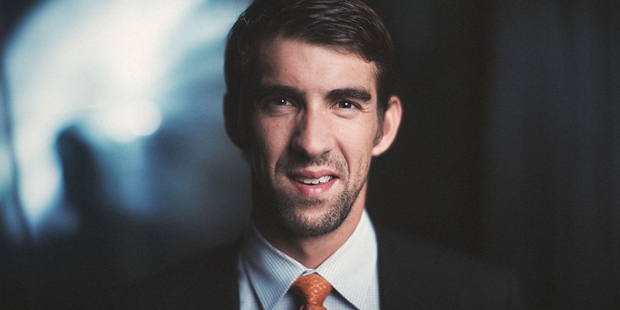
Synopsis
Everyone knows that Olympics are the pinnacle of a sportsman’s achievements. Then imagine this athlete who has won 22 Olympic medals and 18 of them gold. This is Michael Phelps for you, who has achieved beyond everyone’s wildest imagination. But he had dreamed that he would break the records that existed because otherwise, he would not be able to achieve such an impossible feat. He says, “I think that everything is possible as long as you put your mind to it and you put the work and time into it. I think your mind really controls everything.”
Childhood
Michael Phelps was born in the Neighbourhood of Towson, Maryland just north of Baltimore on June 30, 1985. He is the youngest of three children. Phelps started to swim at the age of seven. He was diagnosed with ADHD (attention deficit hyperactivity disorder) in the sixth grade. At age 10 he started to train under Bob Bowan at the North Baltimore Aquatic Club. At that age, he already held the national record for his age group.
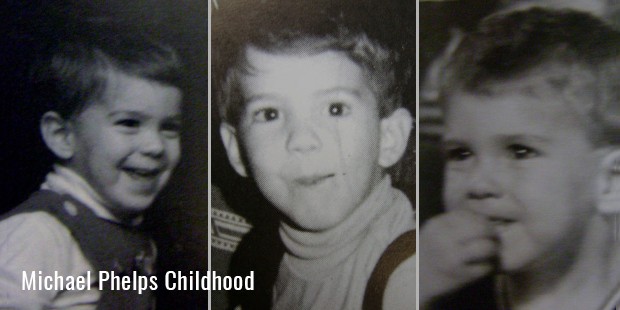
Early Career
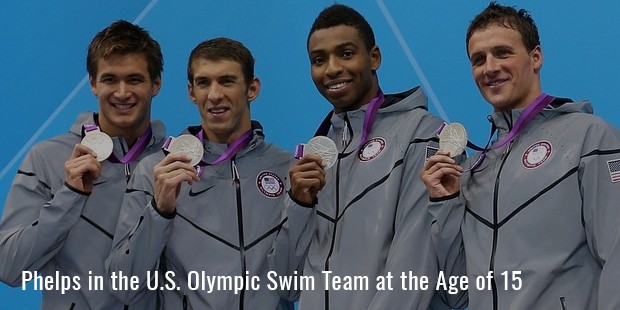
Soon he started to break the records in the respective age groups. At the age of 15, he was on the U.S. Olympic swim team being the youngest male to do so. He was able to finish 5th in the 200-meter butterfly. At the age 15 years and 9 months, he set his first of many world records. At the World Championships in Fukuoka, he broke his 200-meter record and became world champion for the first time in his career.
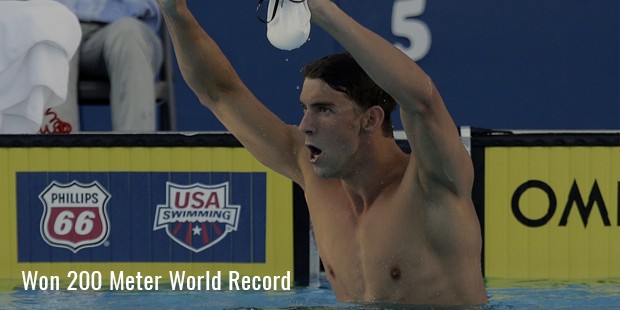
Career
Soon he began to focus on the medley. At the 2002 Pan Pacific Swimming Championships in Yokohama, he surprised the world by winning three gold medals and two silver medals. The events were the 200m and 400m medley, butterfly and 4x100m medley and 4x200m freestyle. At the 2003 World Aquatics Championships, Phelps won four gold medals, two silvers and broke five world records.
Now he started to participate in the butterfly and freestyle events regularly. At the U.S. team trials, Phelps took part in six events and came on top in all of them. He was ready for the 2004 Olympics and said that he would end up winning eight gold medals breaking the all-time record held by Mark Spitz of winning seven gold medals in a single Olympics.
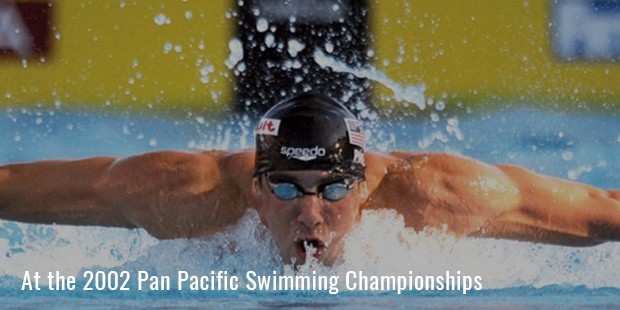
At the 2004 Olympics, Phelps was in good shape and started off with gold in the first event. But in the 4x100m relay event due to his team mate Ian Crocker’s sickness, their team ended with a bronze. And at the third race which was the labelled the race of the century he lost out on the gold to Ian Thorpe. Phelps was disappointed that he could not match Spitz’s record so he put more effort in the next races. As a result, he won the next five races and became the toast of the Olympics.
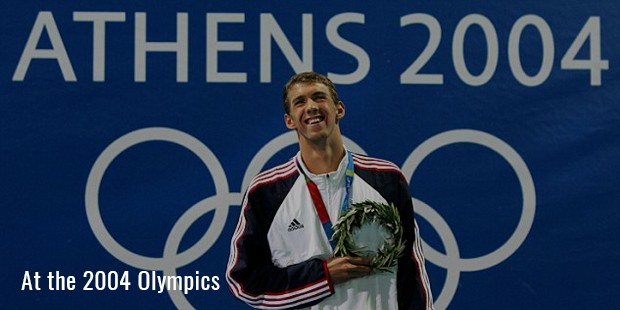
He continued his form throughout his preparation for the 2008 Beijing Olympics. He fared well at the World Championships in 2005, 2007 and the Pan Pacific Championships in 2006 breaking numerous world records along the way. The much awaited 2008 Olympics arrived with all the focus on Phelps as he was in his prime and had very few competitors in his way.
He was expected to sweep all the events he participated in and that are exactly what he did. He started with gold in 400-meter individual medley setting a new world record. He secured the next two events pretty comfortably. In the fourth event, the 200-meter butterfly Phelps won by just seven-tenths of the second in spite of him being unable to see the final 100 meters because of water clogging his goggles. He won his seventh gold medal in the 100-meter butterfly by 0.01 seconds. Though there was a controversy surrounding who came first. Later Phelps was confirmed as the winner.
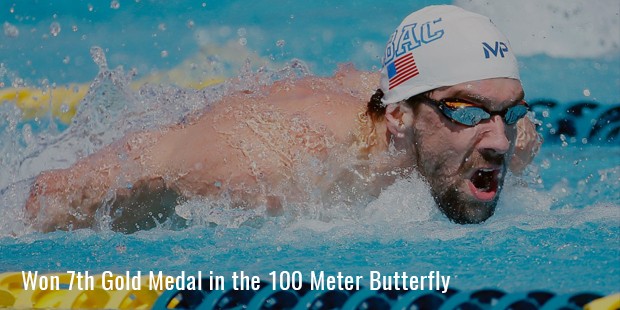
Career Highlights
This made him tie Mark Spitz for achieving the maximum medals in a single Olympics. Later in the 4x100 meter medley relay, he created history by becoming the first person to win eight gold medals in a single Olympics. He was hailed as one of the Olympic greats after overtaking Carl Lewis, Larisa Latonia, Pave Norma, and Mark Spitz in the gold medal tally and becoming the all-time leader with 14 gold medals and 2 bronze. In all, he broke seven world records in the eight events he took part in.
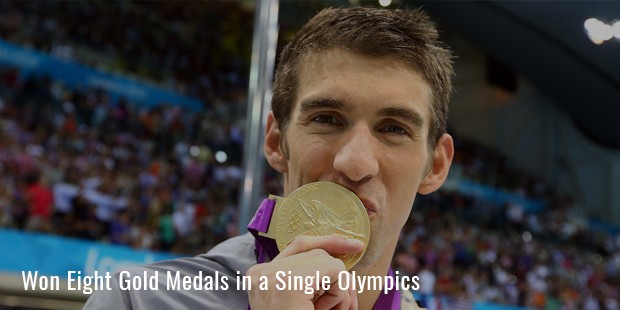
Phelps kept on breaking world records in the subsequent World Championships in 2009 but soon started participating in fewer events. He still was able to win 5 gold medals in the 2009 and 2011 World Championships and 4 gold medals in the Pan Pacific Championships in 2010.He prepared for the 2012 London Olympics with extra zeal as he had announced that it would be his last Olympics.
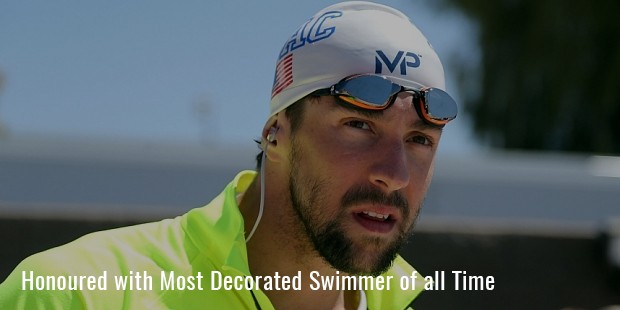
Phelps was not the favourite in all the events he participated but went on to win gold medals in the 100-meter butterfly, 200-meter individual medley, 4x200-meter freestyle relay and the 4x100-meter medley. He also won an additional two bronze medals. He was honoured at his last race by FINA as the most decorated swimmer and Olympian of all time. He finished his career with 18 gold medals, two silver medals and two bronze medals taking the medal tally where no individual could dream to reach in the coming years.
He has the pinnacle where other sportspersons can only dream to reach. He has been the winner of the World Swimmer of the Year and the American Swimmer of the Year numerous times. This 6 ft 4 in giant who is fondly known as the flying fish, Baltimore bullet will always remain in our hearts as the one who took the natural physical advantages and talent that he was blessed with and achieved his true potential. Hope we can come to see such a sporting legend in the near future.
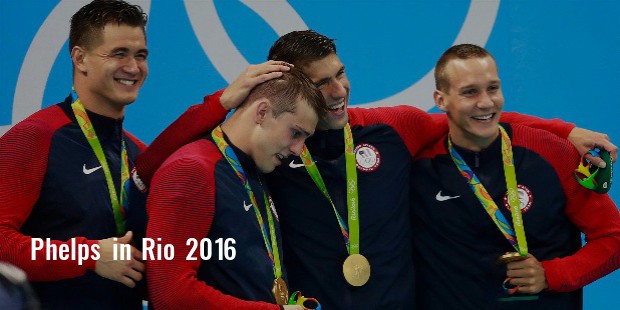
In Rio 2016, he won his 19th Olympic Gold Medal as he helped his US teammates, Caeleb Dressel, Ryan Held, Nathan Adrian win the 4x100m relay.
Awards
- 2013
-
Best U.S. Male Olympian ESPY, Laureus World Sports, Best Record-Breaking Performance ESPY
- 2009
-
Best Male Athlete ESPY, Best U.S. Male Olympian ESPY, Best Record-Breaking Performance ESPY, Best Moment ESPY, Milliyet Sports, Best Record-Breaking Performance ESPY, Milliyet Sports
- 2008
-
Sports Illustrated Sportsman of the Year, Associated Press Male Athlete of the Year
- 2005
-
Best U.S. Male Olympian ESPY
- 2003
-
James E. Sullivan









